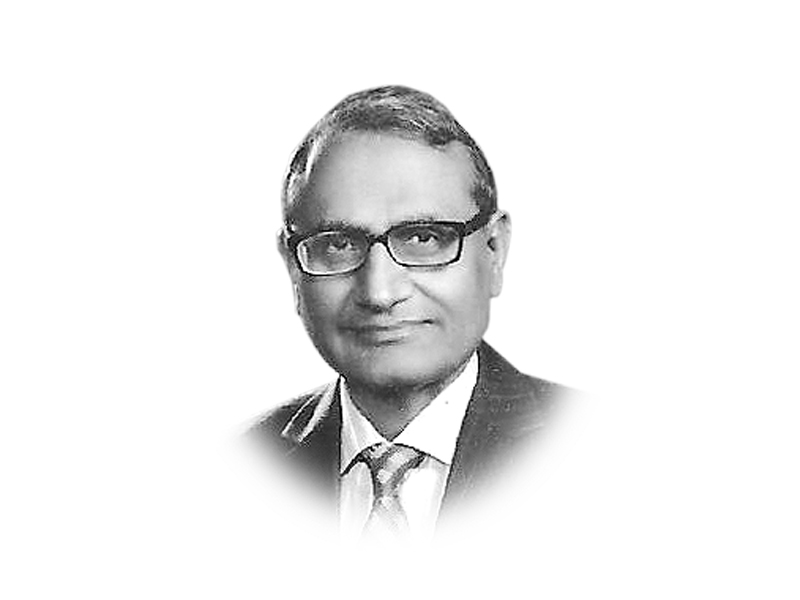

Merit, accountability and transparency also don their platform. Allama Qadri’s 10-point programme goes further. It talks of devolution, more provinces, minority rights, women’s rights, education and health reform, housing for all, poverty alleviation, and heavily-subsidised food and other basic items of consumption. Imran’s Azadi March boils down to a single-minded pursuit of electoral reform and new elections. Give me power and all good will follow, is his constant refrain. Allama Qadri wants a national government to implement his agenda before any election can take place. He calls it revolution. Revolutions do not happen without the participation of workers and peasants. Despite his rhetorical references to the forgotten (even by the PPP) Article 3 of the Constitution to end all forms of exploitation, and organising his followers along the lines of a communist party, the absence of workers and peasants reduces the PAT to a pressure group. In spite of a respectable presence in the Parliament and control of the government in a province, the PTI has also reduced itself to a pressure group by insisting on the resignation of the prime minister before it would discuss any matter of substance. Pressure groups do influence policy here and there, but are not known to have made revolutions in the annals of history.
A most worrying aspect of the two dharnas is an utter failure to understand that the promises made to the public have to be financed at some point. It is not enough to say, as Imran Khan does, that the recovery of the looted wealth will do it. The folly and futility of the approach is exceeded only by the recent illusion created by the government to bring back a fantastic sum of $200 billion from Swiss banks. Tax reform, the only serious way of mobilising the desired resources, is not given the attention it deserves. If anything, the talk is about reducing taxes, increasing subsidies. In a country where the elite already deems taxes as an undesirable imposition and traders prefer personal donation and zakat to paying taxes, raising the spectre of no taxation without representation was irresponsible. Warning the IMF and the World Bank that their loans will not be repaid falls in the same genre.
Dharnas are a feature of democracy, but turning them into vehicles against it is a worst political economy move. A ‘good’ dictator may provide an episode of high growth, but a functioning democracy is conducive to high and sustained economic growth. India, chided in its initial stages of development for Hindu, meaning low, growth rate, has eventually emerged as a member of the high and stable growth league. A recent working paper of the United Nations University by Masaki and Van de Walle finds positive association between democracy and growth for sub-Saharan Africa. The association is more pronounced for countries with longer periods of democracy.
Published in The Express Tribune, August 22nd, 2014.
Like Opinion & Editorial on Facebook, follow @ETOpEd on Twitter to receive all updates on all our daily pieces.
COMMENTS (3)
Comments are moderated and generally will be posted if they are on-topic and not abusive.
For more information, please see our Comments FAQ

1722586547-0/Untitled-design-(73)1722586547-0-165x106.webp)


1732326457-0/prime-(1)1732326457-0-165x106.webp)








Thanks for this interesting analysis. Two points are most striking: 1) The urban, lower middle-class base of marchers - the class worst hit by neo-liberal economic policies followed by Pakistani legislators; 2) The lack of rural poor - the class most under the thumb of the 'feudals' who dominate Pakistani legislatures, federal and provincial.
Lesson to be learned: For the interests of the lower middle-classes to be met, they must reach out to and educate the rural poor. This will: 1) undermine the very 'feudals' who rule; 2) make such dharnas more representative and effective.
Perhaps, then taxing the 'feudals' can also be added to the agenda as a means of financing poverty alleviation.
The innocent inaqalabis don't understand that numbers simply don't add up to corroborate the illusions created by IK and TUQ for a country with a population, and geo political realities of Pakistan. To support their version of naya Pakistan, the country will need to have a GDP per capita of atleast 15 times it current value, and that too in a span of a couple of years. That level of growth will need a plethora of supporting mechanisms and infrstructure in place which even super powers of the world have taken decades, if not centuries to create. However, even to take the first step on that long road to prosperity, stability and continuity of goverment is an absolute necessity.
Dharnomics is the only way to get rid of crony Darnomics that is gutting Pakistan!
Godspeed Imran!